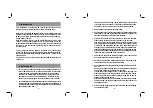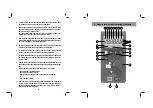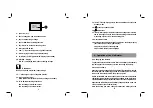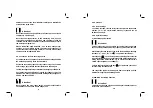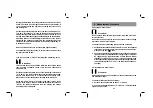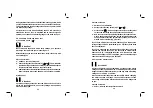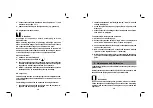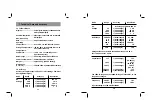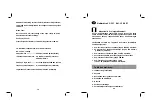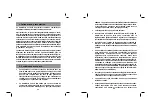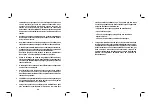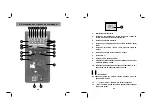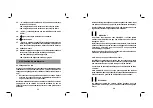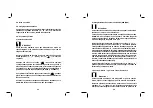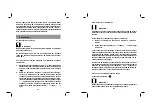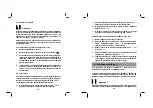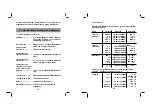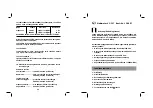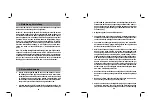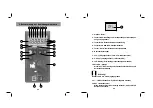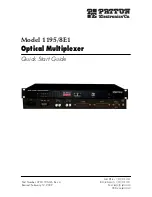
2.
Connect the test-leads with the COM-socket (black = "-") and
with the V-socket (red = "+").
3.
Attach the test lead tips to the signal source (e.g. generator)
5.5 Capacitance Measurement
Attention!
Discharge all capacitors before attempting to make
measurements.
When shorting capacitors, high-energy discharge may take
place. Caution life danger! Do not touch the terminals if there
are capacitors with voltages over 35 VDC or 25 VAC.
Do not use this measuring unit in environments or rooms with
adverse environmental conditions where burnable gas, vapour
or dust is existing or might exist ==> explosion hazard!
Proceed as follows:
1.
Switch on your measuring unit
2.
Set the rotary function switch to "
".
3.
There is no socket to measure capacitors, you have to use the test
lead tips. Ensure that the correct polarity is observed for unipolar
capacitors. A manual range selection is not possible.
4.
If "diSC" is displayed, if the capacitor to be measured has not been
discharged and a so called residual charge is existing.
5.6 Logic Test
This measuring function is to analyze logic levels in digital circuits.
Levels with frequencies of up to 400 kHz or a rise time of 2.5
µ
s can
be measured.
The following conditions can be measured in the logic function:
•
the test point shows a high level (up to max. 39,9 V) then "H"
appears and the voltage is displayed.
•
the test point shows a low-level (up to max. -9.9 V) "L" and the
voltage is displayed.
•
at the test point is a frequency signal, "PULS" appears in the
display or
•
at the test point is no voltage or the circuit/the IC is not active,
then "OPEn" is displayed.
To measure logic levels proceed as follows:
1.
Switch on your measuring unit.
2.
Set the rotary function switch to "Logic Probe". The display will
show "OPEn" which means "open" or there is no signal.
3.
Connect the test-leads with the COM-socket (black cable) and
the V-socket (red cable).
4.
Now connect the other end of the black test-lead with the
"ground" of the digital circuit = "-" (normally)
5.
While the black measuring cable is connected with the ground,
you check the measuring points in question with the red test-lead
point.
6. Maintenance and Calibration
Calibrate the meter once a year to maintain its accuracy over a longer
period of time.
Battery replacement is described in point 4.1 of this manual. Clean
the unit and the display with a soft, dry, antistatic cloth.
Attention!
Do not use abrasive detergents, gasoline, alcohol or similar.
These detergents could damage the surface of the measuring
unit. Besides solvent fumes are dangerous to your health and
explosive.
15
16


